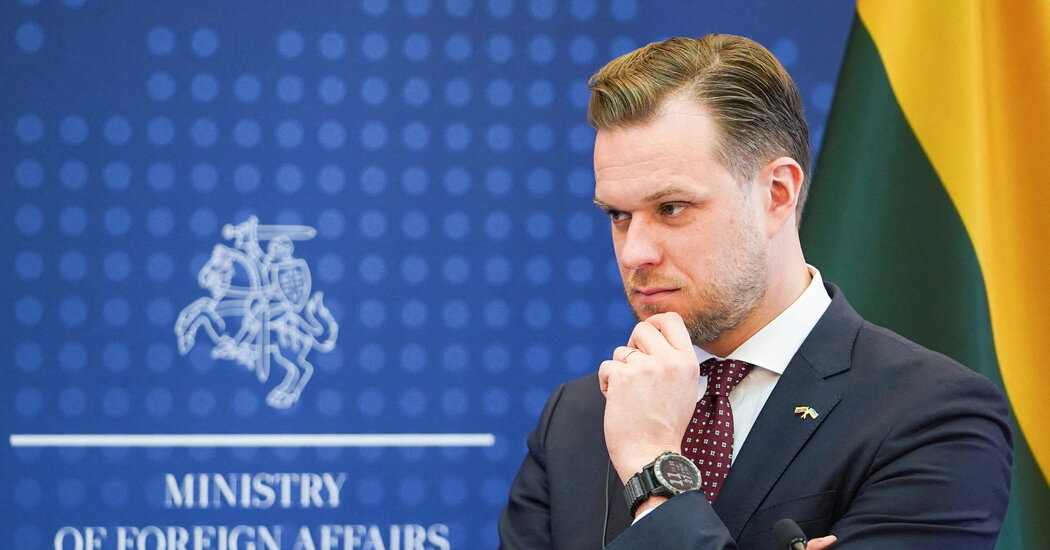‘This is America’s fight’: Europe largely stays out of the fray on Pelosi’s trip.

BRUSSELS — Europe is increasingly wary about China’s human rights abuses in Xinjiang, crackdown in Hong Kong, widespread censorship and pervasive social controls, let alone its technological advances, industrial espionage and aggressive rhetoric.
Nor are Europeans very happy about the “no limits” partnership that China and Russia proclaimed shortly before Russia invaded Ukraine in February.
But Europe does not support the independence of Taiwan and recognizes Beijing as the seat of Chinese power.
And what matters more for the Europeans is keeping open trade with China and its huge market, while joining Washington in trying to prevent any military aggression against Taiwan. No European country, however supportive of democracy, has indicated much willingness to go halfway around the world to help defend Taiwan militarily, as President Biden has sometimes vowed to do (before the White House corrects him).
So European leaders have been mostly quiet about House Speaker Nancy Pelosi’s controversial visit to Taiwan.
“This is not their fight, this is America’s fight, and the Biden administration has been clear for the last year and a half that the Indo-Pacific is its priority,” said Philippe Le Corre, a China scholar at Harvard University. “Taiwan was pretty quiet, and most Europeans think the trip was a mistake,” raising tensions when “there is a war going on in Europe itself.”
If Europe is growing wary of new investment in China, Taiwan is considered an American issue, as is the larger Pacific, where Europe has few military assets.
“The enduring U.S. support to Taiwan has nothing to do with democracy and everything with geopolitics and credibility,” said Gérard Araud, the former French ambassador to both the United States and the United Nations.
The only country in the European Union to openly support Ms. Pelosi’s visit has been Lithuania. Through a Twitter message, its foreign minister, Gabrielius Landsbergis, said that now that “Speaker Pelosi has opened the door to Taiwan much wider, I am sure other defenders of freedom and democracy will be walking through very soon.”
Perhaps. But Lithuania and Beijing are in an ugly spat over Taiwan; Vilnius allowed Taiwan’s new unofficial embassy, to use the word Taiwan in its name, and Beijing retaliated with trade restrictions. Other European Union countries were upset that Lithuania, without consulting them, had created what they viewed as an unnecessary problem.
Germany’s foreign minister, Annalena Baerbock, has been an outspoken critic of China’s domestic policies and human rights violations. Without supporting the Pelosi trip, Ms. Baerbock warned China against escalating tensions with Taiwan.
“We do not accept when international law is broken and a powerful neighbor attacks its smaller neighbor in violation of international law — and that of course also applies to China,” she told Der Spiegel newsmagazine before the visit. “In view of the brutal Russian war of aggression against Ukraine, it is important to make it clear that the international community does not accept such behavior.”
But Europeans — and German businesspeople — know that China and the European Union are huge partners in two-way trade.
Still, increasing criticism of China has led to more interest in Europe in the fate of Taiwan, which, like Ukraine, is another little democracy facing a nuclear-armed authoritarian.
In October of last year, Taiwan’s foreign minister, Joseph Wu, went on a charm offensive in Europe, stopping in Brussels for informal meetings with European Union lawmakers. The European Parliament overwhelmingly backed a resolution calling for stronger ties with Taiwan, which it described as a “partner and democratic ally in the Indo-Pacific.”
Then the Parliament sent its first-ever formal delegation to visit the island, defying Beijing’s threats of retaliation and its imposing sanctions on some prominent legislators.
But the Parliament is largely powerless in foreign policy and does not speak for the European Commission, let alone for member states.
Britain, no longer a member of the European Union, has been more open in its criticism of China than other European countries, and a visit to Taiwan by the House of Commons foreign affairs committee has long been in the cards.
Yet the British trip would come in November or December, after the Communist Party congress. Before that, China’s leader, Xi Jinping, wants to project strength to ensure that he gets another term in office. It is Ms. Pelosi’s timing that many analysts think has angered Mr. Xi and prompted such a strong response.